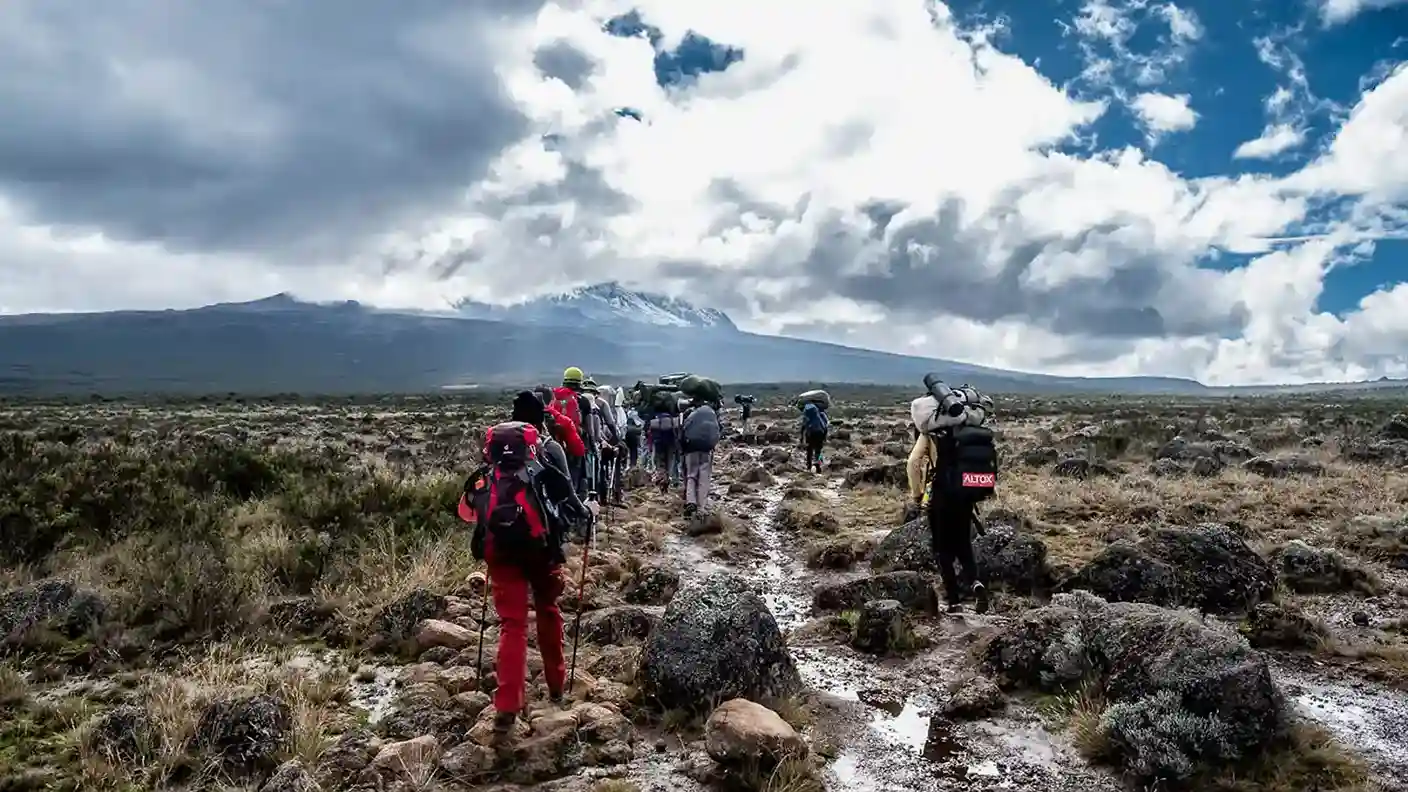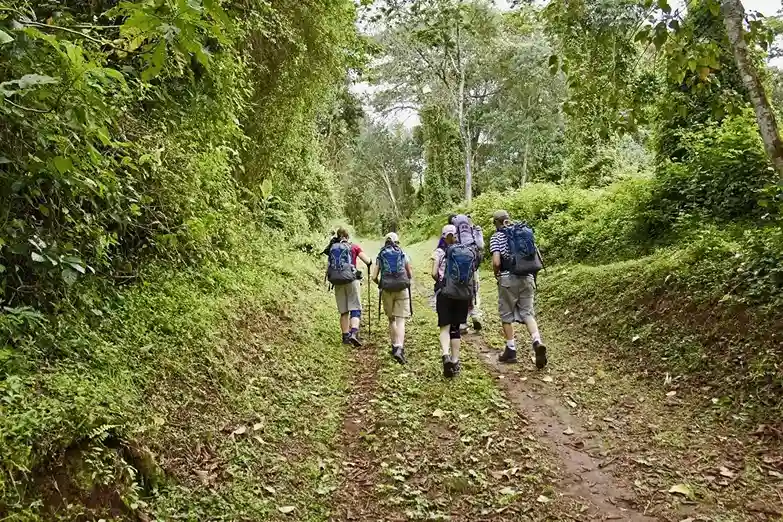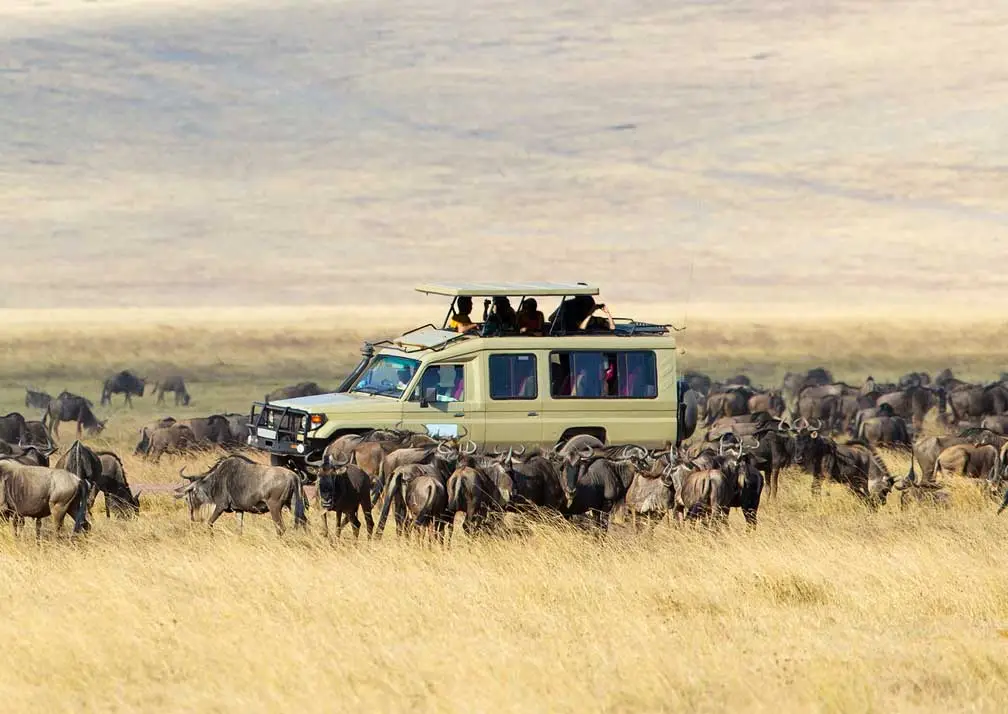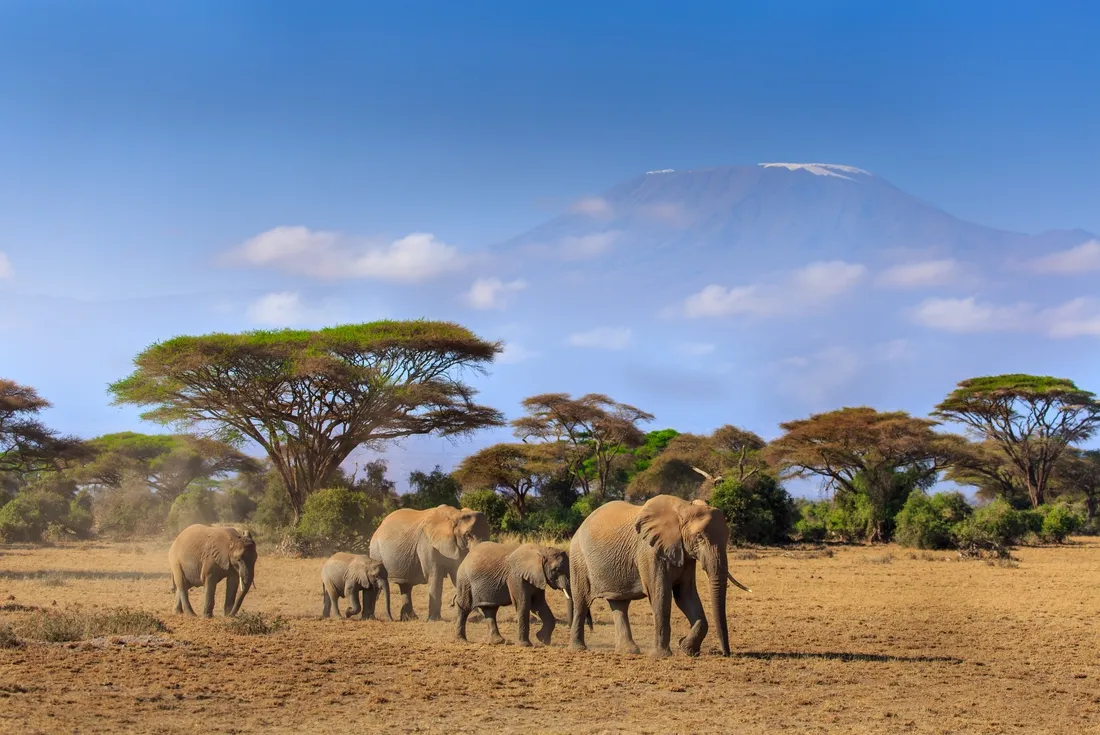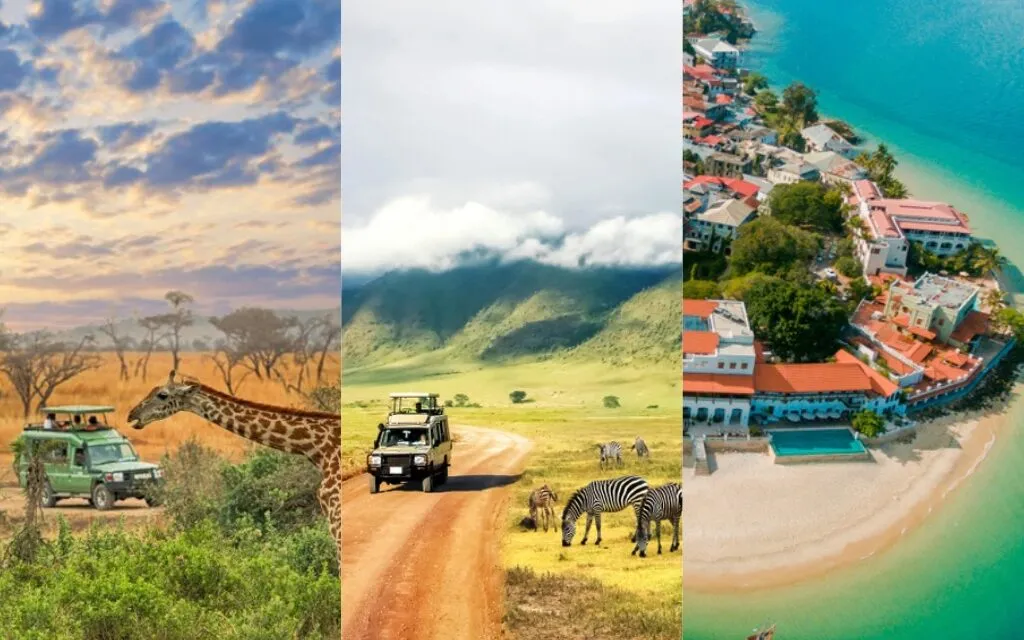Kilimanjaro Northern Circuit Route – Guided Trek to the Summit
Embark on an unforgettable Kilimanjaro trek via the Northern Circuit Route with Capable Africa Tours. This scenic, less-crowded route offers the best acclimatization for a successful summit at Uhuru Peak (5,895m). With expert guides, comfortable camping, and breathtaking views of Kilimanjaro’s glaciers, our Kilimanjaro guided tours ensure an adventure of a lifetime. Explore the Northern Circuit’s unique flora and fauna, from lush rainforests to alpine deserts, and conquer Africa’s highest peak. Read on to discover our Kilimanjaro trekking packages, itinerary, and tips to plan your dream Kilimanjaro adventure tour!
Book Your Trek NowKilimanjaro Northern Circuit Route Highlights
- Duration: 9–11 Days, Customizable
- Destination: Kilimanjaro National Park, Tanzania
- Main Focus: Summit Uhuru Peak, scenic views, optimal acclimatization
- Tour Style: Guided trek, small groups (2–12 people)
- Best Time: January–March, June–October for clear weather
- Ideal For: Adventure seekers, trekkers, nature lovers
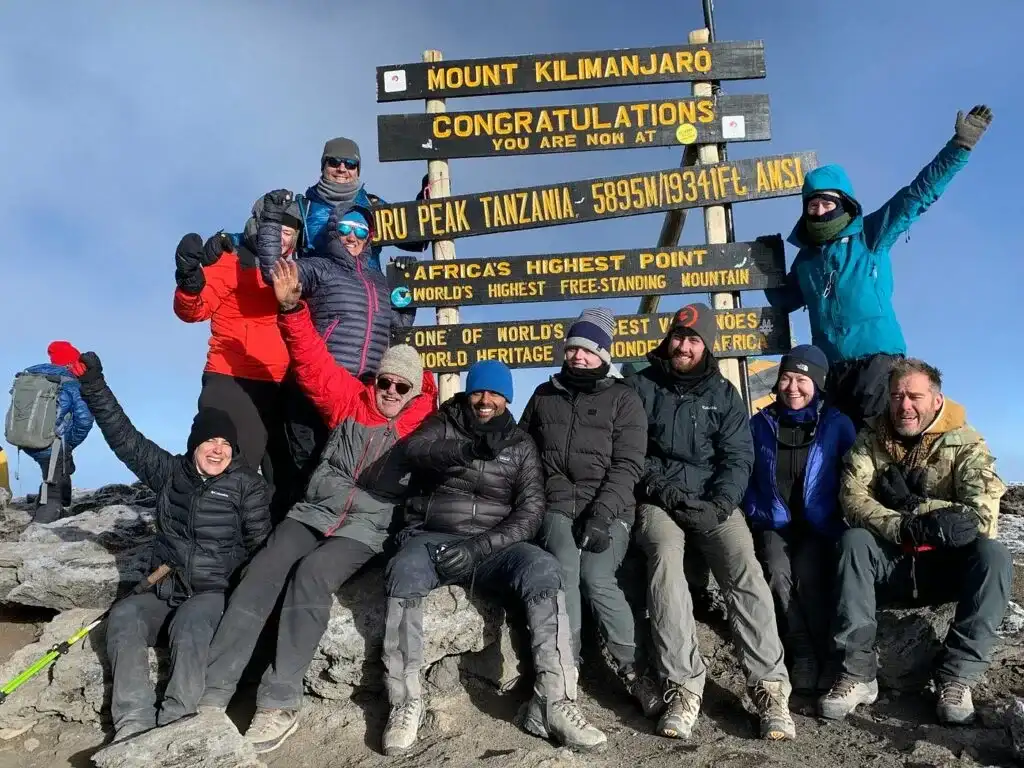
Introduction to the Northern Circuit Route Kilimanjaro
The Northern Circuit Route is Kilimanjaro’s longest and most scenic path to Uhuru Peak, offering a high summit success rate of over 95% due to its extended acclimatization. Spanning 9–11 days, this route circles the northern slopes of Kilimanjaro, showcasing diverse landscapes from lush rainforests to alpine deserts and stunning glaciers. Unlike the busier Machame or Marangu routes, the Northern Circuit is less crowded, providing a serene Kilimanjaro trekking experience. With Capable Africa Tours, you’ll trek with professional guides, enjoy comfortable camping on the Northern Circuit, and witness iconic Kilimanjaro photography spots, including the Lava Tower and Barranco Wall.
This route is ideal for those seeking a Kilimanjaro multi-day trek that balances adventure, safety, and breathtaking scenery. Whether you’re a beginner or seasoned trekker, our Kilimanjaro guided tours ensure a safe and rewarding climb to the summit.
Why Choose the Northern Circuit Route?
The Northern Circuit Route stands out among Kilimanjaro routes for its unique advantages. Its longer duration (9–11 days) allows for gradual ascent, significantly reducing the risk of altitude sickness. This makes it one of the best routes for beginners and those prioritizing Kilimanjaro acclimatization tips. The route’s remote northern path offers solitude and panoramic views, including Kilimanjaro’s glaciers and the Shira Plateau. Compared to the Machame route, the Northern Circuit is less crowded, providing a more intimate connection with Kilimanjaro’s flora and fauna.
With Capable Africa Tours, your Kilimanjaro adventure tour includes expert guides, porters for luggage, and well-planned campsites, ensuring a seamless climb Kilimanjaro via Northern Circuit experience. It’s the perfect choice for a memorable Kilimanjaro summit climb.
Kilimanjaro Trek Itinerary: Northern Circuit Route
The Northern Circuit Route typically spans 9–11 days, offering a well-paced Kilimanjaro multi-day trek. Below is a sample 9-day itinerary, customizable with Capable Africa Tours:
- Day 1: Arrival in Moshi – Briefings and gear checks in Moshi, gateway to Kilimanjaro National Park.
- Day 2: Londorossi Gate to Mti Mkubwa – Start at 2,100m, trek through rainforest to camp at 2,650m.
- Day 3: Mti Mkubwa to Shira 1 – Ascend to 3,500m, crossing the Shira Plateau with stunning views.
- Day 4: Shira 1 to Shira 2 – Trek to 3,900m, enjoying moorland landscapes and acclimatization.
- Day 5: Shira 2 to Moir Hut – Reach 4,200m, exploring the northern slopes and Lava Tower.
- Day 6: Moir Hut to Buffalo Camp – Descend to 4,020m, circling Kilimanjaro’s northern face.
- Day 7: Buffalo Camp to Rongai Third Cave – Trek to 3,900m, preparing for the summit push.
- Day 8: Rongai Third Cave to School Hut – Ascend to 4,800m, resting for the summit attempt.
- Day 9: Summit to Uhuru Peak & Descent – Summit at 5,895m, then descend to Mweka Camp (3,100m).
Our Kilimanjaro professional guides ensure safety and support throughout this scenic Kilimanjaro hike Northern Circuit.
Northern Circuit vs Machame Route: A Comparison
Choosing between the Northern Circuit and Machame Route depends on your priorities. Here’s a quick Kilimanjaro routes comparison:
- Northern Circuit: 9–11 days, less crowded, higher success rate (95%+), better acclimatization, scenic northern views.
- Machame Route: 6–7 days, more crowded, 85% success rate, steeper ascent, diverse but busier trails.
The Northern Circuit is ideal for those seeking a longer, more immersive Kilimanjaro trekking experience with fewer trekkers and optimal acclimatization.
Kilimanjaro Trekking Gear Checklist
Proper gear is essential for a safe and comfortable Kilimanjaro summit climb. Below is a detailed Kilimanjaro trekking gear checklist:
- Clothing: Moisture-wicking base layers, fleece jacket, waterproof jacket/pants, insulated parka for summit night.
- Footwear: Sturdy, broken-in hiking boots, gaiters, and camp sandals.
- Sleeping Gear: Sleeping bag (rated to -15°C), sleeping pad, and pillow.
- Accessories: Trekking poles, headlamp with extra batteries, sunglasses, and sunscreen (SPF 50+).
- Backpack: 30–40L daypack for personal items; porters handle main luggage.
- Hydration: 3L water bladder or bottles, water purification tablets.
- Other: Camera for Kilimanjaro photography spots, snacks, and personal medications.
Capable Africa Tours provides rental options for select gear upon request.
Kilimanjaro Fitness Preparation Tips
Climbing Kilimanjaro requires moderate fitness, but preparation is key. Start training 3–6 months before your Kilimanjaro adventure tour with these tips:
- Cardio: Run, cycle, or swim 3–4 times weekly to build endurance.
- Hiking: Practice long hikes (4–6 hours) with a weighted backpack on varied terrain.
- Strength: Focus on leg and core exercises like squats, lunges, and planks.
- Altitude Training: If possible, train at elevation or use a stair climber to simulate ascent.
Our guides provide Kilimanjaro hiking safety tips and monitor your health daily to ensure a safe trek.
Kilimanjaro Altitude Sickness Tips
Altitude sickness is a concern on any Kilimanjaro climb, but the Northern Circuit’s gradual ascent minimizes risks. Follow these Kilimanjaro acclimatization tips:
- Hydrate: Drink 3–4 liters of water daily to stay hydrated.
- Pace Yourself: Follow the “pole pole” (slowly) approach to conserve energy.
- Medications: Consult your doctor about Diamox for altitude sickness prevention.
- Monitor Symptoms: Report headaches, nausea, or dizziness to your guide immediately.
Our Kilimanjaro professional guides conduct daily health checks and carry oxygen for emergencies.
Scenic Views & Kilimanjaro Flora and Fauna
The Northern Circuit Route offers unparalleled scenic views on the Kilimanjaro Northern Circuit. Trek through rainforests teeming with colobus monkeys, moorlands with giant senecios, and alpine deserts leading to Kilimanjaro’s glaciers. Key Kilimanjaro photography spots include:
- Shira Plateau: Vast volcanic landscapes with sunset views.
- Lava Tower: Dramatic rock formation at 4,600m.
- Uhuru Peak: Stunning sunrise views from Africa’s highest point.
Encounter Kilimanjaro’s flora and fauna, from unique high-altitude plants to elusive wildlife, making this route a nature lover’s dream.
Kilimanjaro National Park Permits & Logistics
Climbing Kilimanjaro requires permits, which are included in our Kilimanjaro trekking packages. Capable Africa Tours handles all Kilimanjaro travel logistics, including:
- Permits: Entry, camping, and rescue fees for Kilimanjaro National Park.
- Transfers: Round-trip transport from Moshi or Arusha to the trailhead.
- Porters: Dedicated porters carry up to 15kg of your luggage, leaving you with a light daypack.
Most trekkers fly into Kilimanjaro International Airport (JRO), with transfers seamlessly arranged by our team.
Kilimanjaro Northern Circuit Gallery
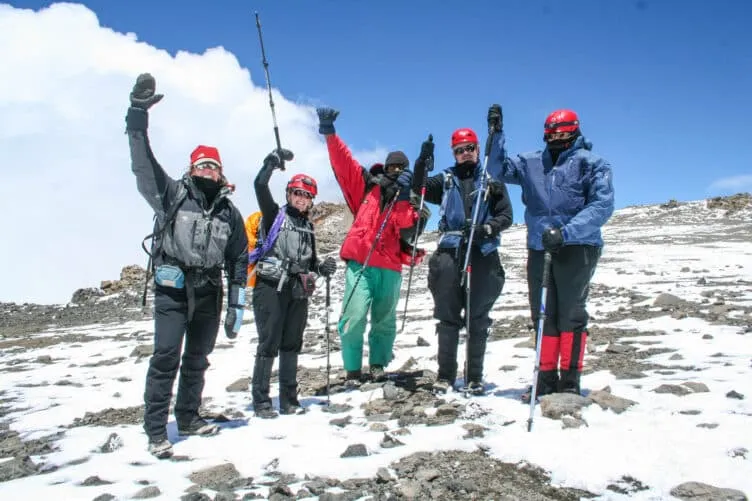
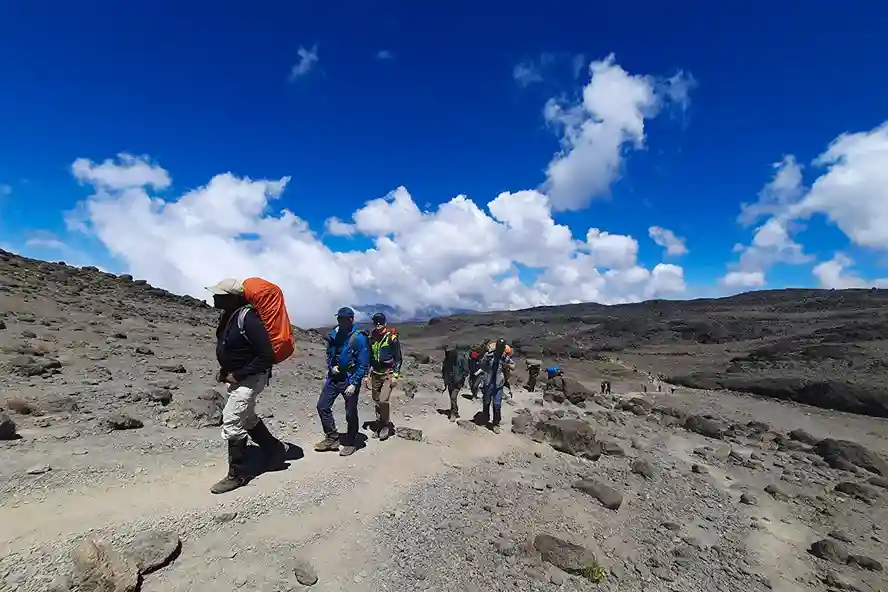
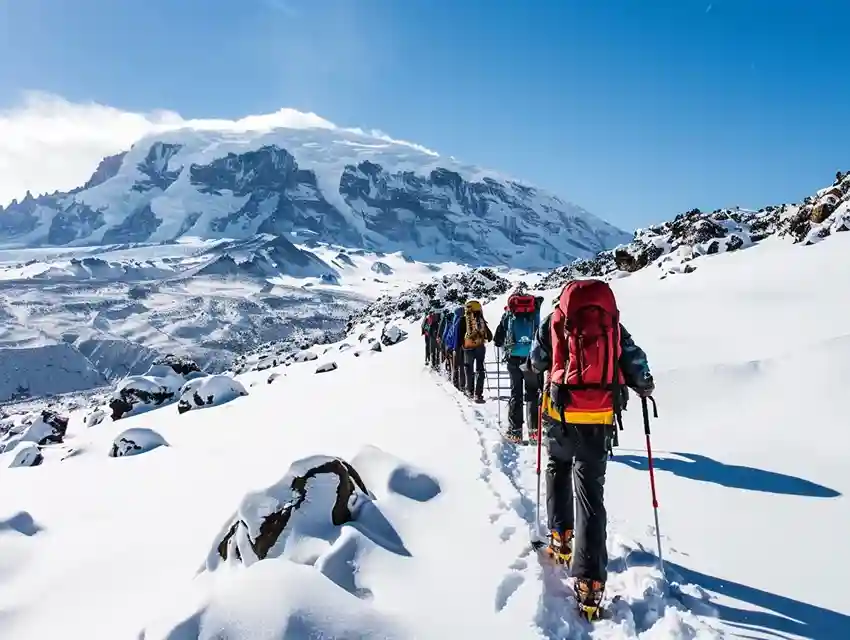
Experience the Kilimanjaro Northern Circuit Adventure
Watch the breathtaking beauty of the Kilimanjaro Northern Circuit Route unfold, from lush rainforests to the iconic Uhuru Peak summit.
Why Book Your Kilimanjaro Trek with Us
Capable Africa Tours offers unmatched expertise for your Kilimanjaro guided tour. Our benefits include:
- 95%+ summit success rate with the Northern Circuit Route.
- Experienced Kilimanjaro professional guides and porters.
- Comfortable Kilimanjaro camping on Northern Circuit with quality gear.
- Customizable itineraries, including Serengeti safari add-ons.
- 24/7 support and seamless Kilimanjaro travel logistics.
Book with us for a Kilimanjaro adventure holiday that combines safety, comfort, and unforgettable memories.
Ready for Your Kilimanjaro Northern Circuit Trek?
Join Capable Africa Tours for an epic Kilimanjaro summit climb via the Northern Circuit Route. Experience stunning landscapes, expert guidance, and a high success rate in Kilimanjaro National Park.
- 95%+ summit success rate with optimal acclimatization
- Professional guides and dedicated porters
- Comfortable camping and scenic views
- Small groups for a personalized experience
- Supports local communities and conservation
Limited spots available for this exclusive Kilimanjaro trekking Northern Circuit—book now to secure your adventure!
Book This Trek Now
